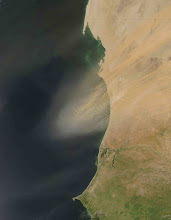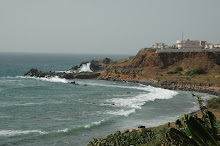I'm not sure what prompted my sudden foray into history, but it was a fascinating journey that I wish I'd begun decades ago in my high school's Western Civilization class, a combination of world history and world literature that most of my friends took. I guess I'm trying to make up for lost time.
 Lady Jane Grey
Lady Jane GreyQueen for 9 Days
It started innocently, with a short but extremely dense and well-written book on Lady Jane Grey. Lady Jane was crowned Queen of England in 1553, at age 15, while imprisoned in the Tower of London. Her reign lasted 9 days. At 16, she was beheaded, a martyr to the shameful rift between Catholics and Protestants.
 Mary I, Queen of Scots
Mary I, Queen of ScotsDaughter of James V
Cousin of England's Queen Elizabeth
Then, meaning to read about Bloody Mary, I mistakenly picked up a tome on Mary Queen of Scots, whose life preceded Lady Jane's by a couple of generations. Mary was born in Scotland, raised in France, and then returned to her homeland, where she reigned several years. It was a tumultuous time in Ireland, and eventually, Mary was forced to flee to England, with promises of aid from her cousin, Elizabeth. Instead of receiving assistance, however, Mary was illegally imprisoned for over two decades, and finally tried, with Elizabeth's tacit approval, by a kangaroo court, and summarily beheaded.
 Catherine of Aragon
Catherine of AragonHenry VIII's first wife
To fill in the gap between Jane and Mary, I started reading The Six Wives of Henry VIII--yet another illustration of Lord Aston's later, famous observation: "Power corrupts. Absolute power corrupts absolutely."
 Henry VIII at age 18 (1509)
Henry VIII at age 18 (1509)The year he was crowned king and married to Catherine of Aragon
Gruesome stuff, British history. Frankly, it reminds me of modern-day warfare among gangs, but with fancier clothing and lower standards of loyalty.
A STUDY IN CONTRASTS
 (l. to r.) Henry Kissinger, Zhou Enlai, Mao Zedong, 1972
(l. to r.) Henry Kissinger, Zhou Enlai, Mao Zedong, 1972For no other reasons than contrast and curiosity, I also picked up a couple of biographies of Chairman Mao. For my entire childhood, Mao was China--and as much of an enigma as was the land he ruled.
The main difference I could discern between Mao and the British royalty was that the Chairman had no effective political opposition, giving him a complete control during his reign. This apparently was because he was so good at keeping adversaries focused on fighting each other that they had no political capital left to fight him.
In addition, he was so disarmingly congenial and empathetic (a surprise to me) that people gave away their darkest secrets to him, which he could later use either for political blackmail or to publicly disgrace them as (worst of all sins) counter-revolutionaries.
My binge eventually petered out. I'm piling up books now for the next one.
All portraits from Wikipedia.org, and apparently in the public domain





